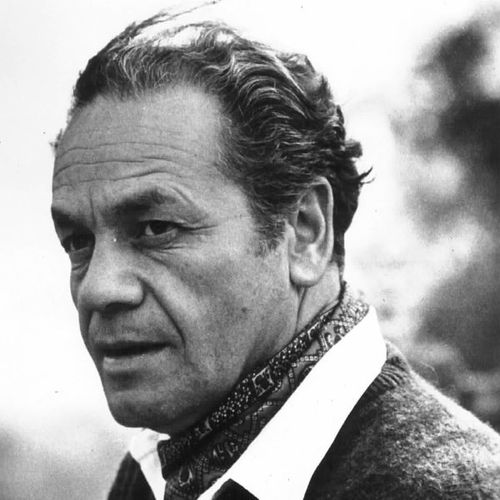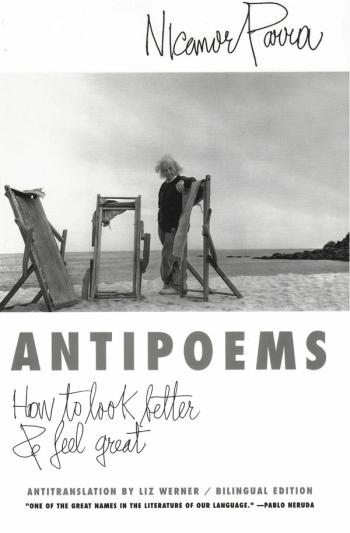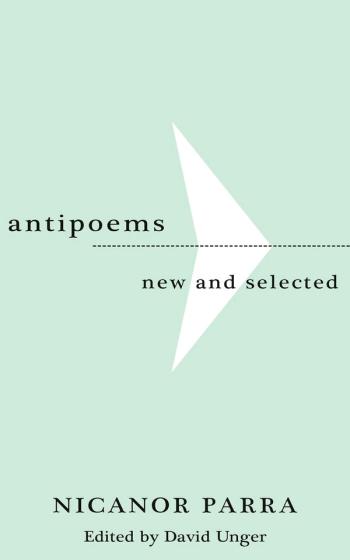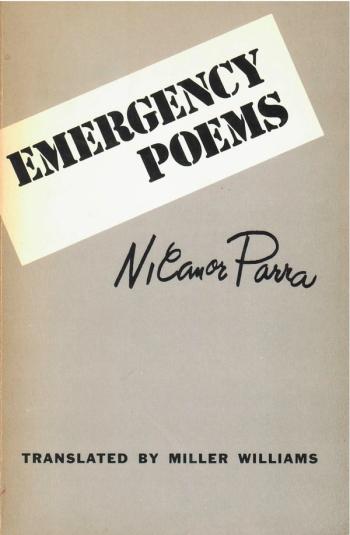“Real seriousness,” Nicanor Parra, the Antipoet of Chile, has said, rests in “the comic.” And read in that light, this newest bilingual collection of his work––the first in twenty years––is very serious indeed. It is an abundant offering of his signature mocking humor, subverting received conventions and pretensions in both poetry and everyday life, public and private, ingeniously and wittily rendered into English in an antitranslation (the word is Parra’s) by Liz Werner. Of the fifty-eight pieces in Antipoems, the first twenty-three are taken from Parra’s 1985 collection, Hojas de Parra (“Vine Leaves” or “Leaves of Parra”), two others appeared in his Páginas en Blanco (“Blank Pages,” 2001 ), while the rest come straight out of his notebooks and have never been collected before, either in Spanish or English. The book itself is divided into two sections. “Antipoems” (im)proper and a selection of Parra’s most recent incarnation of the antipoem, the hand-drawn image of his “Visual Artefactos.” Born in 1914 in the southern city of Chillán, Parra spent many years as a teacher of mathematics and a professor of physics. As his antitranslator Liz Werner expIains in her introduction, Parra’s scientific training infuses his work. “Viewed through the lens of antimatter,” she writes, “antipoetry mirrors poetry, not as its adversary but its perfect complement … it is as opposite, complete, and interdependent as the shape left behind in the fabric where the garment has been cut out. A native New Yorker, translator, poet, and novelist Liz Werner has lived and studied in Valparaíso, Chile, where she worked closely with Nicanor Parra in preparing this book.



